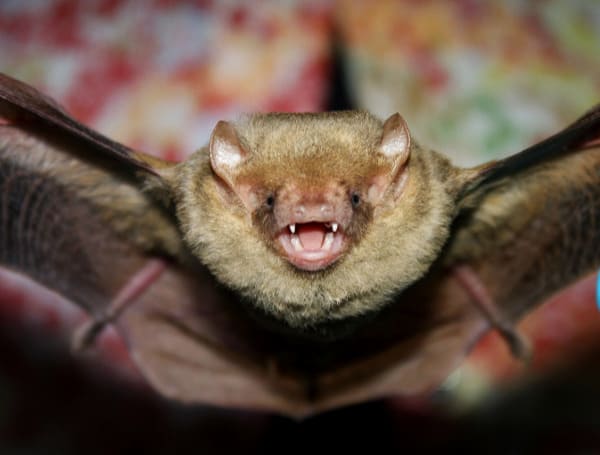
The Florida Fish and Wildlife Conservation Commission (FWC) is sharing the reminder that April 15 marks the start of bat maternity season and is also the last day to legally exclude bats that are roosting in your home or building.
While Florida’s 13 native and beneficial bat species typically roost in trees, caves or other natural spaces, they can also be attracted to human-made structures.
Buildings undergoing major construction can provide greater access to bats. Bat maternity season, the time when bats give birth and raise their young, runs through Aug. 14.
In the news: Florida Spring Brings Bats, Bears, Snakes, And More
During that time, it is illegal to block bats from their roosts. If bats are excluded during maternity season, flightless young can be trapped inside the structure and die, which isn’t good for you or the bats. It is only legal to use exclusion devices from Aug. 15 through April 15.
Permits are required to use exclusion devices outside of those dates.
Exclusion devices, which allow bats to safely exit a structure but block them from returning to roosts, are the only legal and most effective method to remove bats from your home or building.
It is illegal in Florida to kill or harm bats, so exclusion guidelines were developed to ensure bats are excluded safely and effectively from buildings outside of maternity season.
Bat exclusion is a multi-step process that begins by identifying all potential bat entry and exit points in a building. To legally exclude bats, exclusion devices must be installed on key exit points, left up for a minimum of four nights and the exclusion must be conducted when the overnight temperature is forecast to be 50ºF or above.
In the news: Living With Snakes In Florida
Bats are beneficial, both ecologically and economically. They serve critical functions worldwide due to their roles in insect pest control, and as pollinators and seed dispersers, plus their guano can be a valuable fertilizer. Florida’s bats are insectivores and a single bat can eat hundreds of insects, including mosquitoes and other garden and agricultural pests, each night.
Florida’s native bat populations include endangered species such as the Florida bonneted bat. Want to help our bats? There are several ways that Florida residents and visitors can support bat conservation:
- Preserve natural roost sites, including trees with cavities or peeling bark.
- Leave dead fronds on palm trees to provide roosting spots for bats.
- Install a bat house on your property.
- Report unusual bat behavior, as well as sick or dead bats: MyFWC.com/BatMortality.
For more information about how to properly exclude bats as well as other tips to bat-proof your home, visit MyFWC.com/Bats and click “Bats in Buildings.”
Android Users, Click To Download The Free Press App And Never Miss A Story. Follow Us On Facebook and Twitter . Signup for our free newsletter .
We can’t do this without your help; visit our GiveSendGo page and donate any dollar amount; every penny helps.
